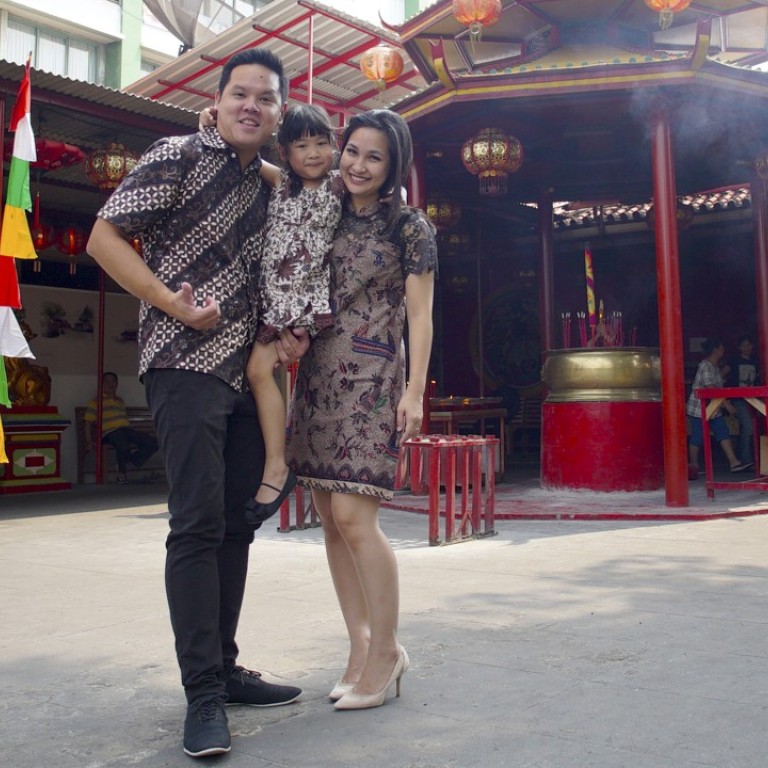
Why more Chinese Indonesians are learning Mandarin, and nurturing their children’s sense of belonging to Chinese culture
Their culture was repressed for decades under Suharto’s anti-Chinese policy, but nowadays Chinese Indonesians are learning Mandarin and educating their children in the language. While most identify as Indonesian, China’s rise makes them proud
Are more Chinese Indonesians studying Mandarin and sending their children to Chinese schools to resolve an identity crisis, or because they feel they “look the part”? Research by Chinese national Anna Luli at an Indonesian university tends to suggest both.
Between 1967 and 1998, Indonesia’s assimilation policy under the New Order regime of dictator Suharto repressed Chinese culture, largely because of its assumed associations with communism – an ideology that is still banned in the country.
700 years of Chinese Indonesian history at risk as young quit Java town
Consequently, Chinese Indonesians were forced to adopt Indonesian-sounding names, Chinese schools and publications were shut down and expressions of Chinese culture and language became illegal.
The situation began to change under the presidency of Abdurrahman Wahid (1999 to 2001), who brought the curtain down on the anti-Chinese policy. There is now a more Chinese- inclusive national discourse, and Chinese Indonesians are encouraged to re-embrace their heritage while affirming their sense of belonging to Indonesia.
Some Chinese Indonesians have since made an effort to learn the Chinese language or provide Chinese-language education for their children.
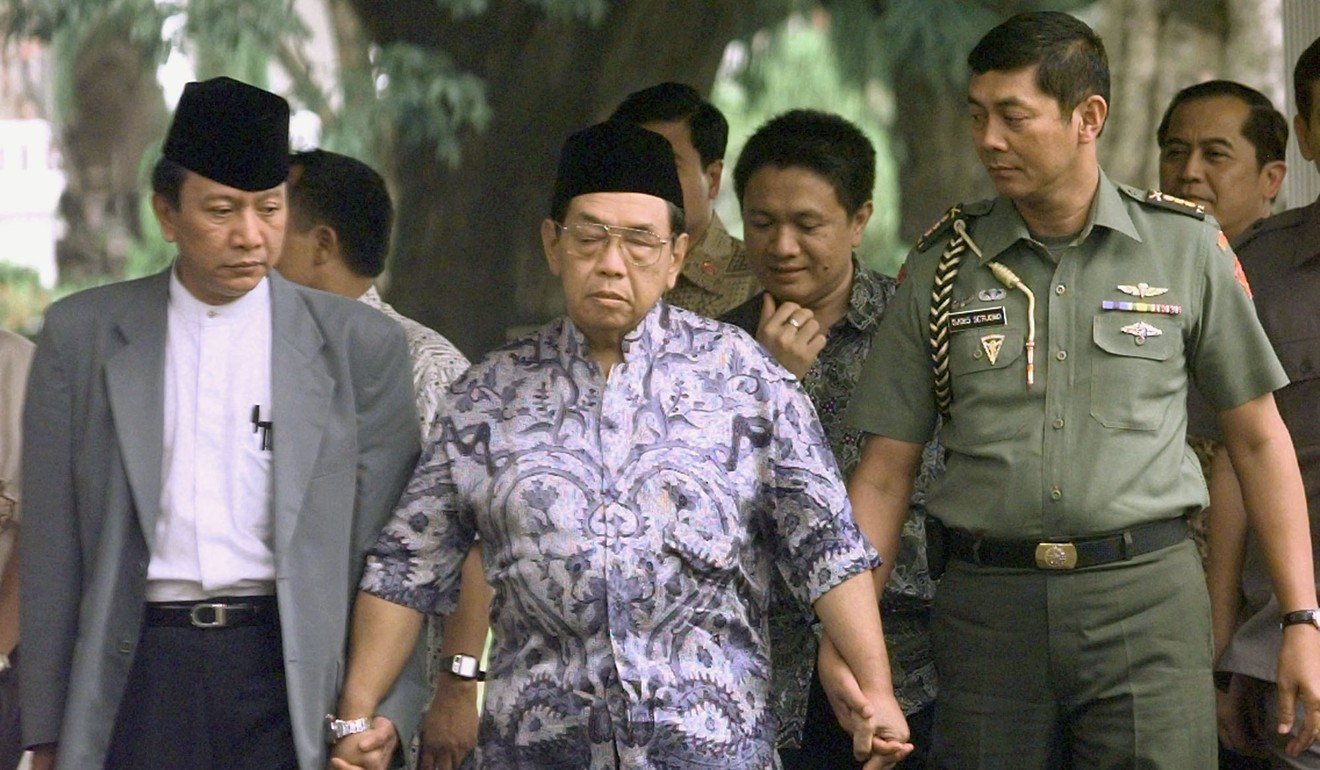
However, it is not easy for Chinese Indonesians to return to their roots, because the parents of most of the generation in school today were born after 1965 and grew up under Suharto’s repressive regime.
Luli, a PhD candidate at the University of Indonesia, is writing a dissertation on the repositioning of contemporary Chinese-Indonesian identity through trilingual education in Jakarta, Surabaya and Medan – major cities with large Chinese populations. Luli and her Chinese-Indonesian husband, Alex Tjandra, are mapping out plans for the future of their eight-month-old daughter, Vanessa.
“For now, the plan is that Alex speaks [Bahasa Indonesia] to Vanessa, and I speak Mandarin. When all of us are present, they use Indonesian and I reply in Mandarin. But this dynamic takes time to get used to, and we’re not there yet,” says Luli in fluent Bahasa Indonesia.

Tjandra learned Mandarin as an adult when he studied at university in China, and both he and Luli are fluent in English.
I started being aware of what being Chinese Indonesian implied. Since then I tried hard to fit in with my other Indonesian friends by taking up popular sports, but there was no point.
Luli’s research reveals that Chinese-Indonesian identity can be expressed in one of three ways: the Chinese diaspora with persisting cultural ties, the global citizen who seizes opportunities beyond cultural barriers, and the Indonesian national.
Chinese-Indonesian parents all want to educate their children trilingually because of this triangular identity, she says.
“Most of the parents I interviewed consider themselves Indonesians, and Indonesia as their home. Many no longer know anyone in China, so they may not want to ‘return’ there permanently,” she says. “But they want to nurture their children’s sense of belonging to Chinese culture and prepare them to be open to future opportunities that being Chinese might bring.
“Meanwhile, English will continue to be an important language among Chinese Indonesians, because it enables them to be on the lookout for other global opportunities.”
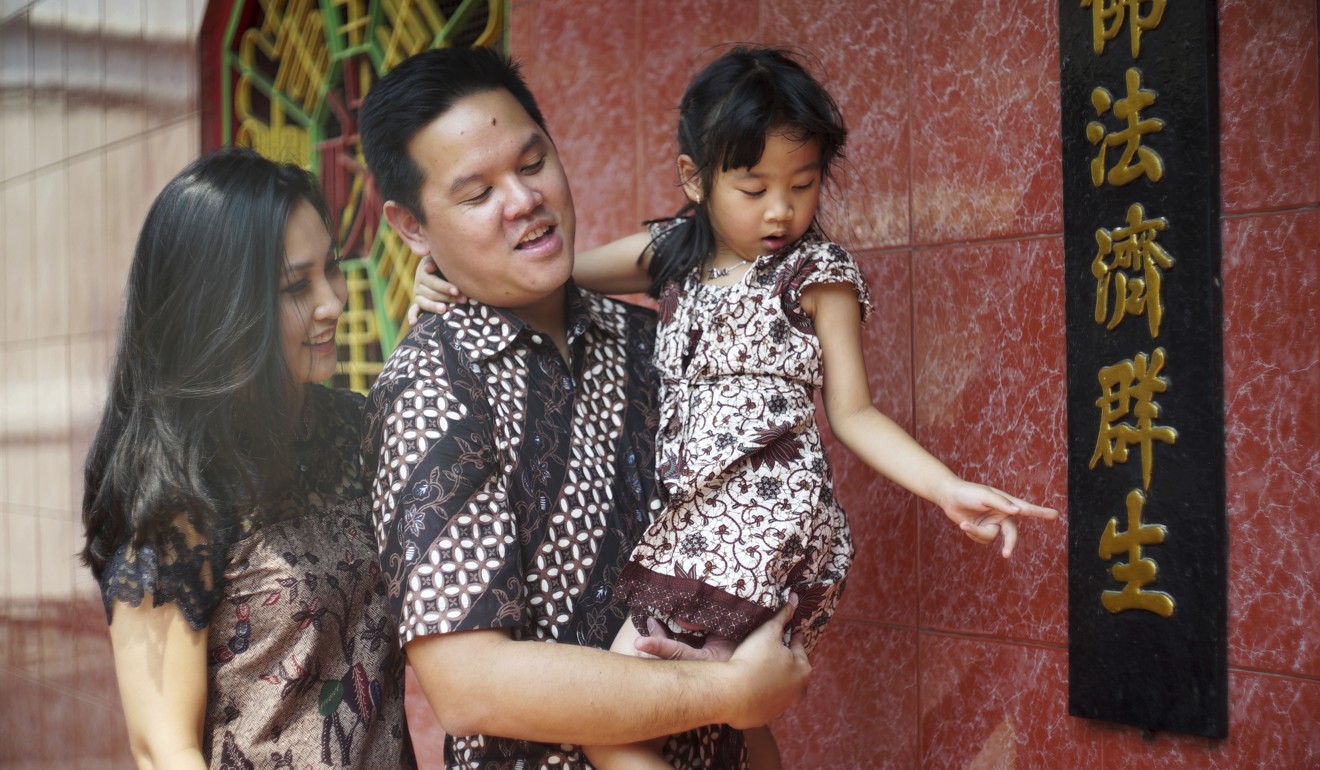
Kevin Mardhi and Martha Tanudjaya, who live in Bekasi, a city near the Indonesian capital, Jakarta, are sending their five-year-old daughter Ziva to an English-Chinese school.
An IT professional at a multinational company, Mardhi says he feels self-conscious when foreign colleagues mistakenly assume he speaks Chinese. The couple are determined that Ziva does not experience the same embarrassment later in life, which is why they decided to raise her primarily in English, with plenty of exposure to Mandarin.
The Chinese Indonesians with exit plans still in case of racial violence
“We talk only in English, right Ziva? You talk Bahasa – or no?” Mardhi calls out to his daughter, who is watching television.
“No,” Ziva replies in English with a big smile.
Mardhi says: “The internet has thoroughly globalised the world today. More and more expat professionals and foreign companies have a presence in Indonesia – many of them from China. Some Chinese expats don’t speak English or Indonesian, but they do have the guts to start something here.”
Tanudjaya says: “We live in Indonesia, so we believe that Ziva will pick up Indonesian without us needing to make any special effort.” She herself is a native speaker of Bahasa who studied Mandarin from 2006 to 2007 at a Beijing-based language school.
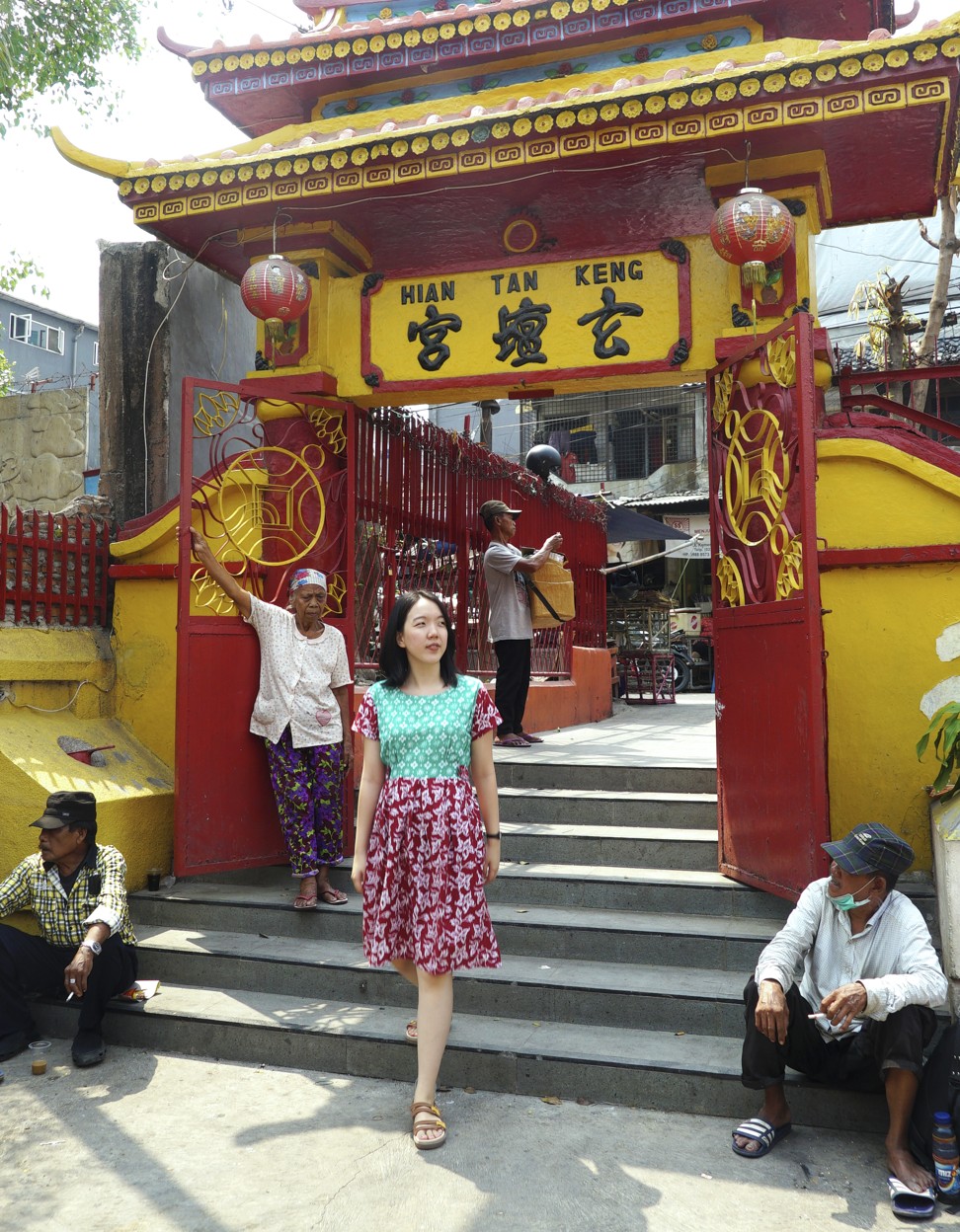
Mardhi says he wanted his wife to speak Chinese to Ziva, but Tanudjaya keeps switching to English.
Giasinta “Livia” Tan, 22, started learning Mandarin in her teens. “My parents have been supportive, especially considering that Chinese has the highest number of speakers in the world. They have never forced it on me or made much effort to link [the importance of learning Chinese] to our heritage,” says Tan.
Her parents speak Sundanese and Javanese – vernacular languages spoken on Java island – rather than Hokkien, a Chinese dialect, or Mandarin. Today, the only other Chinese speaker in her family is her hearing-impaired maternal grandfather.
Chinese Indonesians: distrusted in Jakarta, forgotten in China
Tan rates her Chinese as conversational, and not quite up to professional proficiency. However, having recently been employed by a United Nations agency, she says that a knowledge of Chinese has strengthened her bargaining position.
In Taiwan I was different because I didn’t speak Chinese; in the West I was different because I looked Chinese
Business opportunities and cultural affiliation were Tan’s reasons for learning Mandarin as an elective in secondary school.
“Learning Chinese can open up many opportunities in the global arena. I heard that Chinese-speaking employees in Indonesian branches of Chinese companies are likely to earn more and be on the boss’ good side. I also feel a sense of belonging to Chinese culture.
“In university, my mostly non-Chinese friends called me jiejie [older sister, in Chinese] when we were on friendly terms. Looking the part makes me feel responsible for making the effort to learn Chinese,” she says.
Tjandra also cites “looking the part” for his decision to study in China.
Having grown up in a remote gold-mining community in Papua, the easternmost province in Indonesia, as a child Tjandra felt just as Indonesian as his multicultural friends. But when the craze for Taiwanese drama series Meteor Garden hit Indonesia in the early 2000s, when Tjandra was in his early teens, his friends started telling him he looked more like Dao Ming Si – one of the lead characters – than one of them.

“They didn’t mean to bully me, but I started being aware of what being Chinese Indonesian implied. Since then I tried hard to fit in with my other Indonesian friends by taking up popular sports, but there was no point.
“When I went shopping, I’d hide my Chinese features for fear that vendors might raise the price,” says Tjandra, who adds that he struggled with his Chinese-Indonesian identity.
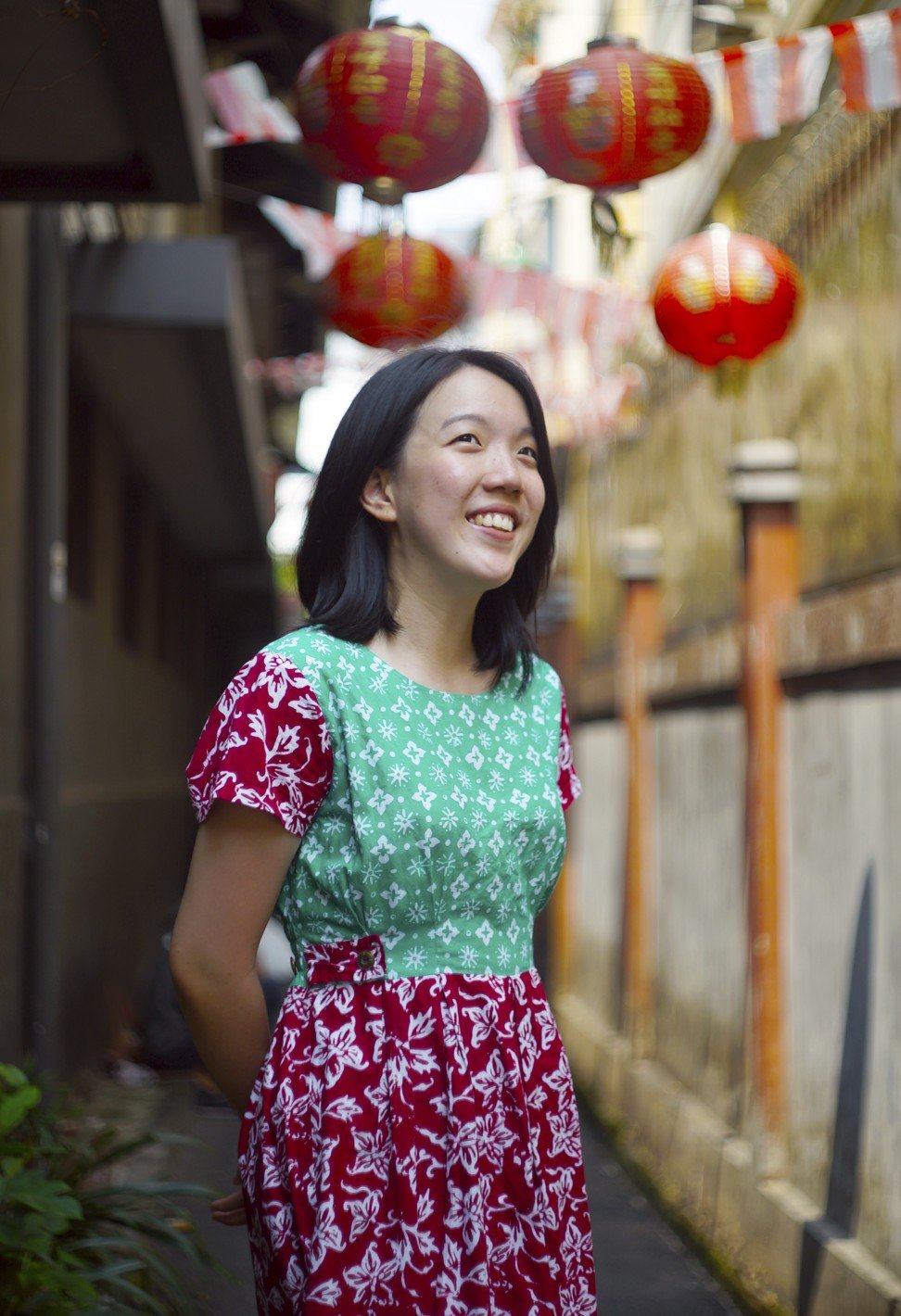
Although convinced that studying in China would bring resolution, he found himself struggling anew after he realised that Indonesia remained the place where he felt most at home.
Luli says a similar experience to her husband’s is conveyed in On Not Speaking Chinese: Living Between Asia and the West, a memoir by University of Western Sydney Distinguished Professor Ien Ang that focuses on her identity crisis during a visit to Taiwan.
“In Taiwan I was different because I didn’t speak Chinese; in the West I was different because I looked Chinese,” writes Ien.
They want to nurture their children’s sense of belonging to Chinese culture and prepare them to be open to future opportunities that being Chinese might bring
A Goodreads review concludes the book “[offers] a critique of the increasingly aggressive construction of a global Chineseness, and [challenges] Western tendencies to equate ‘Chinese’ with ‘Asian’ identity”.
An urge to resolve this struggle is the reason why many of the people Luli interviewed for her research send their children to a trilingual school. She describes these schools as enclaves catering to Chinese-Indonesian educational preferences.
“Like Alex, many of the parents I interviewed recall being made to feel different as kids, by peers who likely meant no harm. But kids internalise these things, and many parents want to spare their children from the same insecurities. Some believe that trilingual schools catering to a Chinese-Indonesian majority might be the solution.”
As a non-Indonesian, Luli says she is fascinated by how proud Chinese Indonesians tend to feel about China’s growing influence in the world, which sees them going so far as to learn the language to feel a part of China’s success.
“Perhaps it’s a validation that a culture I identify with now matters in the globalised world,” Tjandra says.
Why Chinese Indonesians don’t have to hide any longer
Luli says with a laugh: “I’d imagine it feels like having distant relatives who are a clan of famous billionaires.”
The couple plan to spend their daughter’s early years in Indonesia before moving to China to enrol Vanessa in six years of strictly regimented Chinese primary school.
“Chinese is a tough language, and we believe tough primary schooling in China will give Vanessa a good academic foundation for life. Then when she hits her teen years and starts searching for her Indonesian identity, we can move back here to give her room to explore,” Tjandra says.

